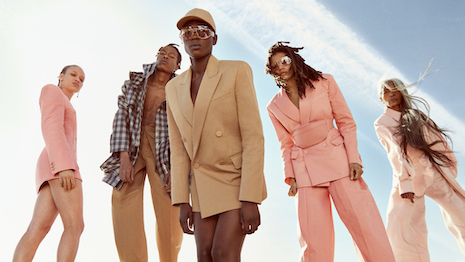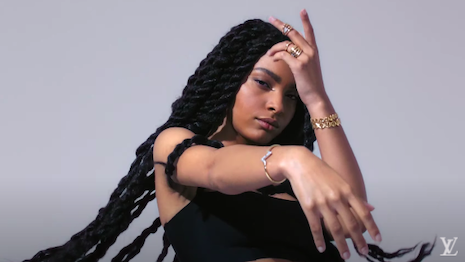 LVMH-owned Fenty was founded by a Black woman, and its advertising is reflective of this. Image credit: Fenty
LVMH-owned Fenty was founded by a Black woman, and its advertising is reflective of this. Image credit: Fenty
The majority of consumers expect brands to commit to inclusivity and diversity in their advertising, according to new research from Getty Images.
Nearly 80 percent of respondents believe advertisers can improve at reflecting people’s true lifestyles and cultures, beyond just including people of various ethnicities, backgrounds and appearances. The findings are based on a Visual GPS global survey of more than 5,000 from 26 different countries, in conjunction with global market research firm YouGov.
“The first Visual GPS study conducted prior to the COVID-19 pandemic showed us how important representation is to people and we continued to track this through the last four months,” said Dr. Rebecca Swift, global head of creative insights at Getty Images, in a statement. “The Summer Update shows that amid the COVID-19 pandemic and despite massive changes in people’s lives, the demand for more diversity in visual communications has only increased.”
Diversity in advertising
Sixty-three percent of consumers prefer to patronize brands that are founded by or represent people like themselves, a result that was consistent across genders and generations with slight regional differences.
Another six in 10 people also feel they have been discriminated against, a sentiment more common among Generation Z consumers, women and respondents in the Americas. Of these people, only 14 percent say they are well-represented in advertising.
 Sharon Alexie for Louis Vuitton's fine jewelry collection, LV Volt. Image credit: Louis Vuitton
Sharon Alexie for Louis Vuitton's fine jewelry collection, LV Volt. Image credit: Louis Vuitton
These consumer perceptions have validity, as earlier findings from the Association of National Advertisers that found multicultural marketing efforts remain rare, although these consumers make up 40 percent of the population in the United States.
Despite increased investments, advertising spend on multicultural media is disproportionate to the population of that audience, according to research from the AMA. Nearly $26 billion was spent on multicultural marketing in 2018, with television being the most popular media platform (see story).
A promising sign from Getty Images is increased search volume for diverse images.
Year-over-year, searches for “diversity” and “inclusion” are up 133 and 126 percent, respectively. From May to June alone, when anti-racism protests made worldwide headlines, image searches for “unity” and “equality” jumped 500 percent while “diverse” searches increased 200 percent.
